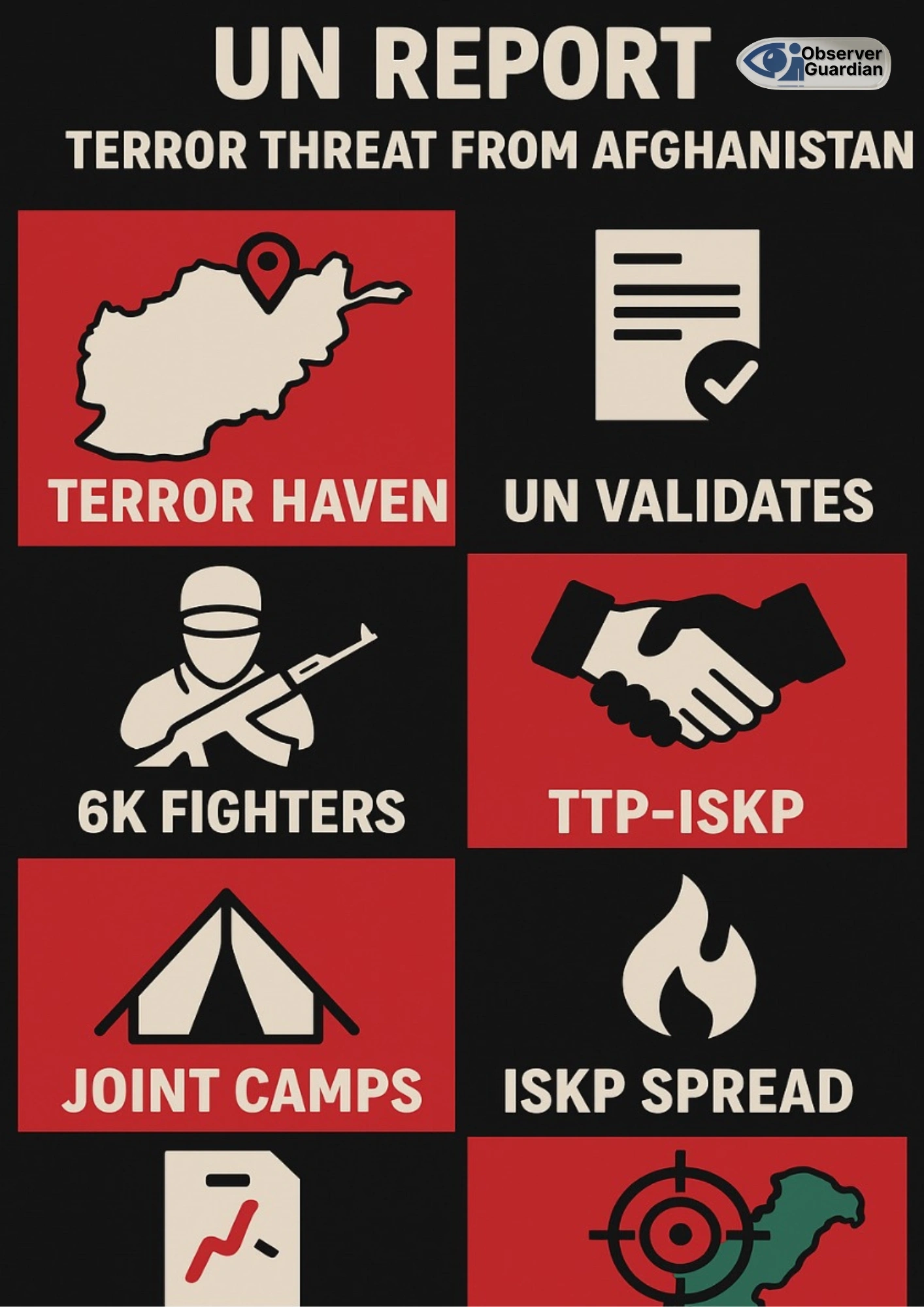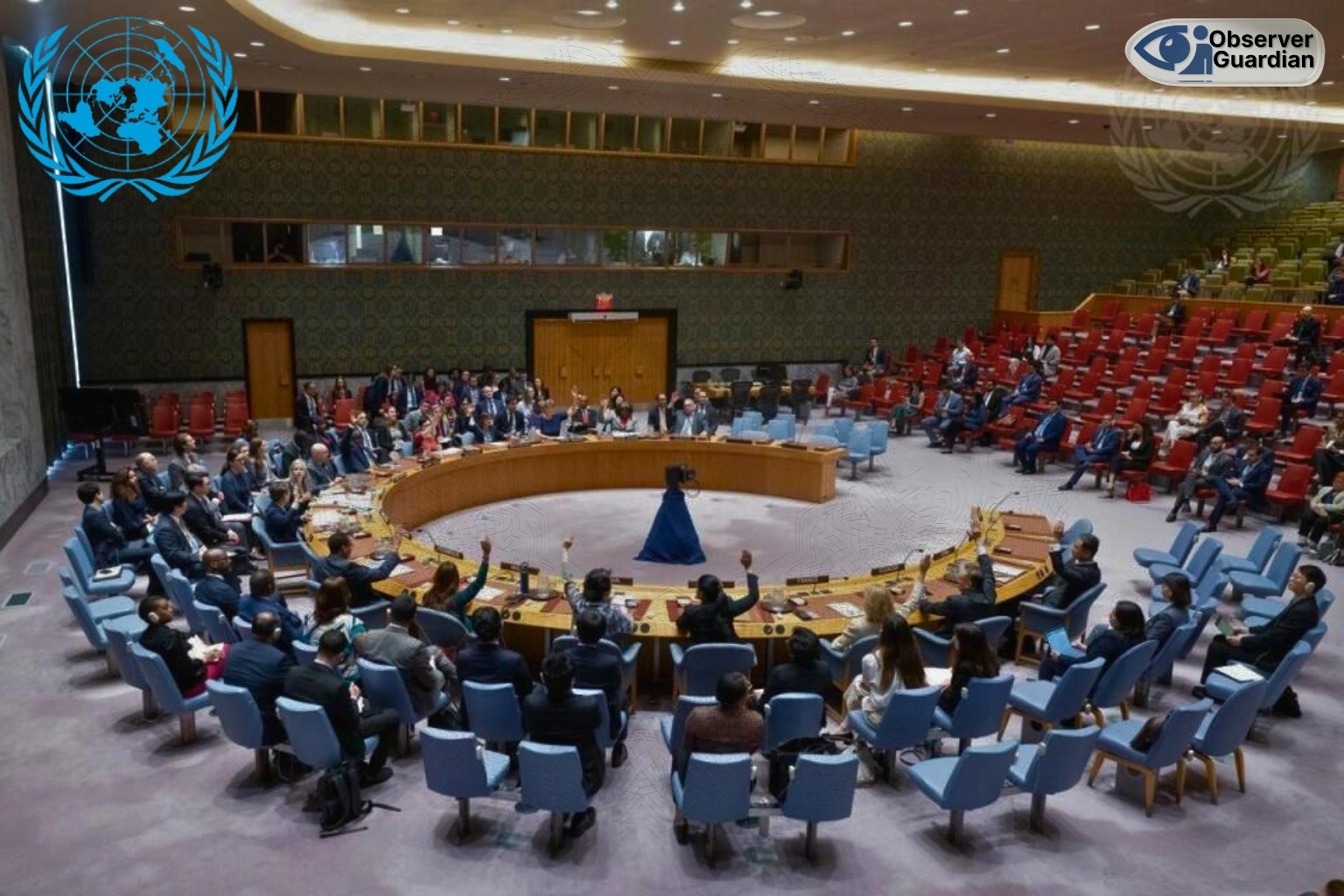A Wake-Up Call
A sobering reminder is provided by the thirty-sixth report of the UN Analytical Support and Sanctions Monitoring Team. Specifically, it was submitted under UNSC Resolution 2734 (2024) which brings to light an uncomfortable truth. Namely, Afghanistan has now turned into a free zone of international terror. TTP, ISKP, Al-Qaida, ETIM and TIP are not only active but, more importantly, are flourishing. Moreover, the Interim Afghan Government (IAG) is not successful in stopping their activity. For Pakistan this is confirmation. Meanwhile, for the world it is a warning.
A Breach of Counter Terrorism Norms
The UN report clarifies what Islamabad has been arguing all along. Pakistan is fighting against its own soil which is Afghanistan. This is not an accident. IAG either tolerates it tacitly or openly encourages it. This kind of leniency is against international rules of counter terrorism. It contradicts international security. The Doha pledge was clear. Soil in Afghanistan was not to be turned against others. The report proves otherwise.

The TTP Threat
Taliban Pakistan (TTP) is the most dangerous player. It is estimated in the report that it has 6,000 fighters. That number is not symbolic. It is an organized military. Attacks on Pakistani citizens and their police officers through TTP have become more severe. All attacks have the connotation of impunity. They have been emboldened by IAG support. The level of violence is increasing. The menace is no longer to be borne.
Deadly Collaboration with ISKP
The TTP-ISKP nexus is one of the most disturbing results. The two groups are ideologically different. But they fight side by side on the battlefield. Operations are tactically interconnected to give them more strength. Their mutual resources and strategies compound them. And individually they are dangerous. Together they are disastrous. This coordination introduces another dimension of danger to local peace.
The BLA Nexus
An alarming association with the Balochistan Liberation Army (BLA) is also seen by the UN report. In southern Afghanistan, TTP and the BLA collaborate closely. The BLA suicide wing or Majeed Brigade has joined TTP. They also have at least four training camps such as Walikot and Shorabak.
The al-Qaida members also train them on ideologies and weapons. It is not a local alliance only. It has global consequences. Afghan soil is becoming a terror triangle.
ISKP’s Expanding Reach
ISKP is free even though IAG says it has acted. Approximately 2,000 fighters are registered in the report. They do not exist only in Afghanistan. They are related to Central Asia and the Russian North Caucasus. Their transnational connections render them a bigger security problem. ISKP thrives in the permissive Afghan climate. They have borderless reach. They have a global ambition rather than a regional one.
The Doha Agreement Breach
The center of the crisis is the broken promise. Under the Doha Agreement the Taliban promised that they would not use the Afghan territory to attack others. The UN report does attest to the fact that this promise has been broken. Terrorist groups plan, train, and launch operations from Afghanistan. It is not just a local violation. It is an international betrayal. The identity of the IAG is in question.
This terrorism has affected Pakistan the most. They target civilians, soldiers and vital infrastructure always. The price is huge in terms of life, stability and resources. International terrorism has reduced the growth of Pakistan. The recognition of the UN confirms the concerns of Pakistan over a long period of time. It must also challenge the international society to act. This storm cannot be left to be fought by Pakistan.

Implications Beyond South Asia
It is not only a report on Pakistan. It is not a South Asian threat. Terror groups in Afghanistan exploit global networks. Peace, stability and trade are threatened. This lax atmosphere left unchecked will embolden terrorism in the world. Afghanistan has turned out to be a haven of threats that defy oceans and continents. This is a worldwide error.
Call for International Action
The findings demand more than words. Accountability, pressure and sanctions are all needed. The world community needs to take action. There is nothing called optional counter terrorism. It is fundamental to international security. The losses of not doing anything will be disastrous. Terrorism feeds on neglect. The UN report is an appeal to act.
UNMT report 36 is not just documentation. It is a landmark in the international war on terrorism. It confirms what Pakistan warns. It reveals the incompetencies of the Interim Afghan Government. It brings out emerging regional and global threats. Most of all, it demands action. The globe can no longer afford to wait. Pakistan cannot shoulder this burden. The security of the world is under threat, and it is high time to act.
Disclaimer: The views and opinions expressed in this article are exclusively those of the author and do not reflect the official stance, policies, or perspectives of the Platform.







